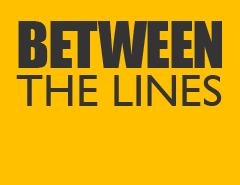The UK’s parliamentary debate helps to lift sterling, whilst the Fed maintains its cautious approach policy
Sterling has enjoyed a bounce over the past two days, the debate in the UK’s House of Commons, concerning the eventual safeguards and conditions for Brexit, has offered up investors and traders some comfort that a policy (of sorts) is finally taking shape.
Despite the facts that doubts still remain, concerning the UK’s ability to trade effectively once a full European exit takes place, sterling rose versus its major peers throughout Wednesday’s trading sessions, as the debate progressed to the final MPs vote, which gave the UK government permission to proceed with the exit plan. GBP/USD pushed through R1 to finish the day at circa 1.2654, whilst GBP/JPY crashed up through R2 in late afternoon, to then recede marginally, finishing at circa 143.25. EUR/GBP slumped through S2, to end the day at approx. 0.8504. EUR/USD ended the day close to flat, at 1.0767.
Despite the rise in sterling, adding overall confidence to the UK’s ability to extricate from Europe without economic terminal damage, there are several alarm bells beginning to sound. Markit’s data released on Wednesday suggested that manufacturing is holding up in Britain, but import costs have spiked alarmingly, with inflation expected to breach 4% (from its current 1.6%), before the end of 2017.
Many respected analysts are rightly suggesting that UK manufacturers have simply enjoyed a recent but short sweet spot; their recent exports have been cheap due to a falling pound. However, now import prices have escalated manufacturing costs will spike accordingly, eradicating any benefit for a cheaper pound encouraging exports.
Samuel Tombs, chief UK economist at Pantheon Macroeconomics;
“The recovery in the manufacturing sector lost a little pace and narrowed to become almost exclusively dependent on domestic demand in January. The new export orders balance collapsed to 50.9 in January – its lowest level since May – from 58.5 in December. This emphatically shows that the benefits to manufacturers from sterling’s depreciation remain far too modest to outweigh the costs for the rest of the economy in terms of high inflation. Domestic demand faltered the last time producers increased prices this quickly in 2011, and we doubt that this time will be different.”
Wednesday saw the release of the latest ISM manufacturing data for the USA and at 56, above the expected reading of 55, it indicates that the USA’s manufacturing base is still in expansion mode. Mortgage applications in the USA surprised the market by slumping -3.2%, versus the previous reading of 4%. The most positive data published on the day concerned the private payroll jobs report courtesy of ADP. This highly valued publication always comes ahead of the NFP report and is often a prescient indication of the future non farm jobs reading on the Friday proceeding the ADP report. Coming in at 246k, ahead of the 165k expected by the economists polled, the reading was quite a leap, versus the previous reading of 151k.
In their first meeting of 2017, to discuss and reveal decisions regarding the USA interest rates, the Fed announced on Wednesday that borrowing and deposit rates would stay at the 0.75% and 0.5% rates. The announcement was already priced in and only a major change to the consensus and policy would have caused increased market volatility and activity. The SPX rose less than one point to close at 2,279.42. The DJIA advanced by a marginal 24.86 points, ending its three day slump. The index is now down circa 1.1% from the record set on Jan. 26th.
Economic calendar events for February 2nd 2017, all times quoted are London times
12:00, currency effected GBP. Bank of England Rate Decision. The current emergency base rate of 0.25%, cut from 0.50% by the BoE governor immediately after the referendum decision in June, is not expected to be altered. Similarly, the current asset purchase scheme level (QE) is likely to remain fixed at 435b.
12:30, currency effected GBP. Carney Speaks at Inflation Report Press Conference. The BoE governor Mark Carney will hold court with an inflation report, once the formalities of the base rate and asset purchase announcements are made. There are fears that the UK’s inflation may spike over the coming months, this fear has been heightened after revelations on Wednesday revealed that import prices have risen sharply. The rising cost of imports is expected to push up the price of UK made goods over the coming year and send inflation from 1.6% to nearer 4%.
12:15, currency effected EUR. ECB’s Mario Draghi Speaks in Ljubljana. Analysts and investors will be paying attention to the ECB president to establish if there’s any clues, or forms of forward guidance, relating to the ECB’s monetary policy.
13:30, currency effected USD. Initial Jobless Claims. With the ADP number beating expectations on Wednesday and with NFP data due on Friday, the expectation of 250k new claims for the previous week will be closely monitored.

